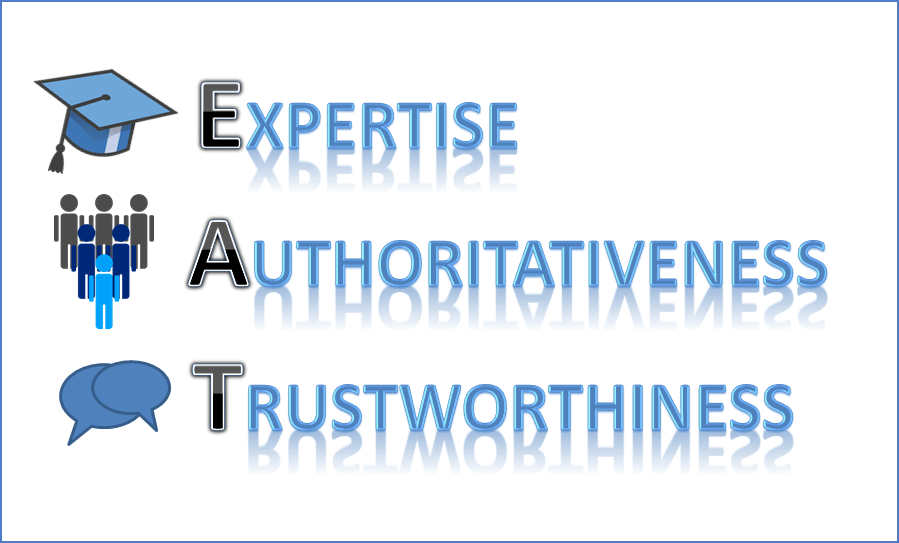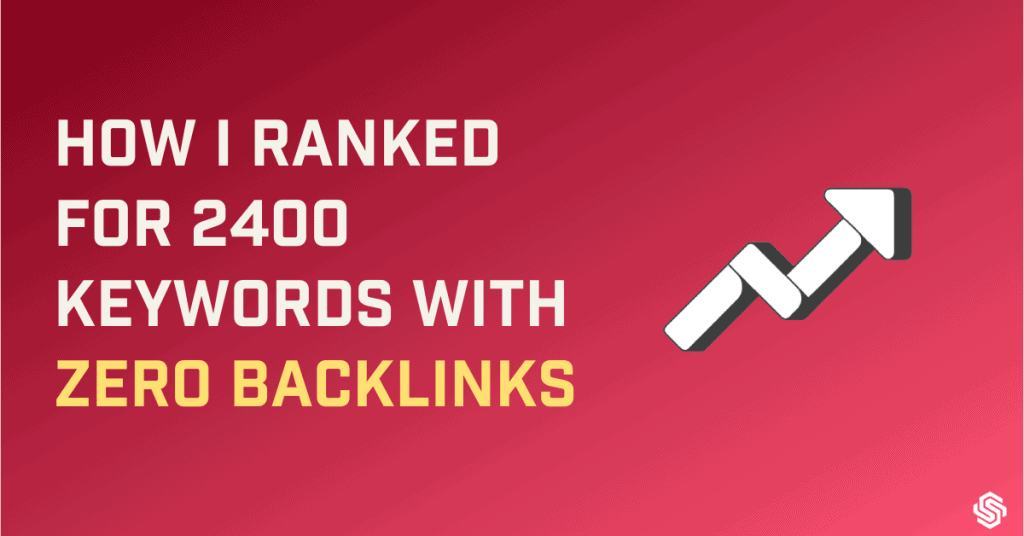
Key Takeaways for you
| – E-A-T stands for Expertise, Authority, and Trust, it is a criterion that Google uses to examine websites for rankings. – E-A-T is not a direct ranking factor, but it affects search ranking indirectly. – It is important for all websites, especially for YMYL (Your Money or Your Life) websites that can have an impact on people’s lives. – You need to introduce yourself and establish your expertise, authority, and trustworthiness. – High-quality and authoritative content, earning quality backlinks, and a good website reputation are some of the other ways to improve E-A-T. – Search quality rating guidelines are used to evaluate the overall quality and relevance of a web page. – E-A-T became more essential after the broad core algorithm update in August 2018 and the Helpful Content Update in 2022. – You can provide valuable information in your content so that your users see you as an expert and so that Google sees your content as E-A-T friendly. |
If you have been in the SEO industry for some time now, I am sure you have heard the frequently floating expression – E-A-T.
You may have wondered what it is all about and why it is a big deal.
I am not talking about Uber Eats, though I could do with some fries and coffee right now.
I am talking about Google E-A-T, an acronym that Google came up with to determine that any content is of high quality and useful for answering search queries.
E-A-T stands for Expertise, Authority, and Trust.
In essence, it is the goodwill a brand builds in the market over time. As a business, brand, or content creator, you need to build goodwill in the internet market too.
EAT is the goodwill that Google rates you and your website with before it can rank you in search results.
What is Google E-A-T in SEO?
It all started in 2013 with Google’s Search Quality Rating Guidelines based on which Google decides which content is of value to users and ranks them accordingly. It was published to give Webmasters an understanding of what Google looks for in their web content and came up with the acronym E-A-T.
Does Google give an EAT score for pages?
No.
EAT is a criterion to evaluate websites for ranking. It is not a score given to websites, but a layman’s version of how the algorithm evaluates and ranks content.
Expertise:
It speaks of the content creator. How much experience and knowledge do you have on the subject? If you are offering a service or a product, Google demands that you have deep knowledge of it. The content and knowledge you share must outweigh that of your competitors.
Authority:
It speaks of the content creator, content, and website. Is your content recognized and cited by other experts in the field? What is your reputation in the industry? When others are referring to your content, when you are the go-to person for any query in your niche, it means you have authority over the subject matter.
Trust:
It speaks of the content creator, content, and the website too. Trustworthiness is the characteristic of being honest and relied upon. Google measures this based on the number of backlinks your website has earned. If others are relying on you, then you must be trustworthy.
To sum it up, E-A-T refers to the characteristics of a page indicating that it has high-quality content, and it is going to be helpful to users making the query.
Is E-A-T a ranking factor?
No, it is not a ranking factor, but it is important for your content to rank.
I am sorry, but I am not messing with you.
Let me elaborate.
EAT is a guideline for Google to qualify a piece of content as high-quality and should be ranked higher. It is not a direct ranking factor, but it affects search ranking indirectly
Why is E-A-T important for SEO?

Here is a fun fact, if you already did not know it.
There is a team of humans at Google, whose job is to perform searches all day long evaluating websites that top in the search results. This is done to ensure that the ranking algorithms are working effectively and recognizing page quality and relevance.
The Search Quality Rater’s Guideline was a document made for these people and they are available to the public. These guidelines give us an insight into how Google perceives and rates the overall quality of a webpage.
EAT is a significant aspect of the Search Quality Rater’s Guidelines to evaluate the credibility of an online resource, and differentiate high and low-quality content.
EAT gained importance ever since the August 2018 broad core algorithm update which was famously referred to as the Medic update because it targeted a lot of medical websites. E-A-T became more important than ever before, since the Helpful Content Update in 2022 because it was all about content.
A high level of EAT for a web page means that it meets the standards of search quality evaluator guidelines (QEG) meaning that the content is reliable for users.
Now, what is Google looking for in your content?
SEOs, take note.
- Is your content helping users?
- Is your content coming from an expert?
- Is it posted on an authoritative website?
- Is it trustworthy?
- Is it updated regularly?
If your content is spreading misinformation, deceiving users, and causing harm, then your EAT is lowered.
Is EAT important for all websites?
EAT is important in general for all websites. But another acronym was born out of the Search Quality Rater’s Guidelines called YMYL which needed E-A-T the most.
Not again!
Google gave this acronym for “Your Money or Your Life” to those types of content that can influence people on an individual level, hence affecting their lives. This includes subjects relating to health, finance, law, and the safety of people.
Any misinformation in these fields could potentially cause harm and negatively impact one’s well-being.
For example, if I am writing about curing diseases and ailments, then Google demands, I am a qualified doctor. My expertise and authority in the subject are more important than the impact I might have if I were a food blogger sharing recipes.
The YMYL websites have such influencing power and they are considered more important. Google expects higher quality standards for these websites and EAT is more important here.
How to write E-A-T-friendly content?

Now that we know EAT is important, let us learn how to improve a website’s EAT.
Introduce yourself:
The three elements of EAT (Expertise, Authority, and Trust) have made it clear that Google wants to know the content creator and also the assurance that the content creator is a reliable source of information.
This mandates an Introduction of yourself on your website. If you have not already added an About Us page outlining who you are and what you do, and about your team, if you have one, you should do it. The About Page is a way to establish your EAT. It is also a place to flash your badges to show your knowledge and skills are recognized.
Show your contact details
About page is not the only way to establish your profile, adding your contacts shows you are real and you mean business. It also means you care about your audience and are willing to be available for them.
Lean on other Experts
It is not just about good content, it’s about how much you know what you are talking about. You can rely on other experts in the field to add value to your content. Rather than writing half-baked content, you can interview experts, get guest writers, or collaborate with others to increase your expertise. You can also link out to high-quality resources. You absorb authority through links and mentions of authoritative sites.
Build backlinks
Backlinks are another way to gain authority. When others are referring to your site as a reference it automatically increases your credibility in the ‘eyes’ of Google. So you need to up your off-page SEO with backlink building.
Be factually correct
Make sure you have done your research and fact-checking before writing about it. The users actually depend on this information. You can fact-check from sources that Google values, like Wikipedia and Wikidata.
Be explicit about the purpose of your content
Why are you writing this content?
Is it to inform, educate, or entertain?
Convey these through the titles and headlines. Don’t just write to fill space and beat around the bush. Write what is useful in a crisp and thorough manner.
Keep your content fresh and updated.
Certain facts and information change with time; if you have written such content, you need to keep it updated. Review your old content from time to time and make the necessary changes.
Perform an SEO and Content Audit
Auditing your site for SEO and Content helps you understand your presence or identity online as a brand. You can also identify any gaps and mistakes you might be making, and fix them. Update what is outdated, delete what is no longer relevant, and modify and improve what does not seem right. Come up with an implementation plan based on the results of your audit to improve your website.
Conclusion
EAT is important especially if your content is related to medical, health, and financial matters, and can have a life-changing impact on the users. So when users make search queries, Google wants to provide useful, relevant, and valid information.
If you want Google to pick your content for search then you must write legit content keeping your users in mind. Write truthful, reliable, and useful content. At the same time, you need to work a little towards establishing your brand as an expert in the field.
Remember this though. The algorithms keep evolving every day, and so do the criteria for evaluation because users’ needs and search expectations are also changing.
And you should too.


